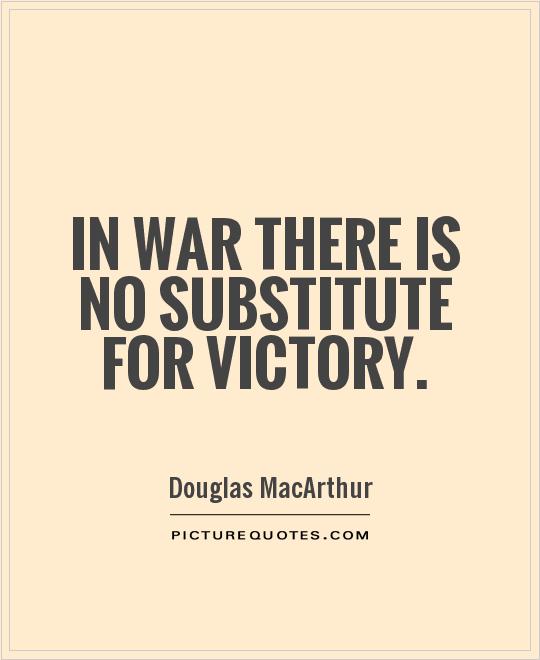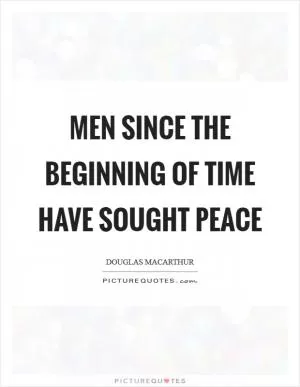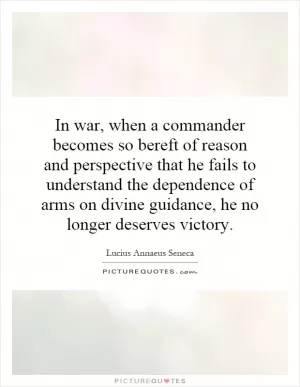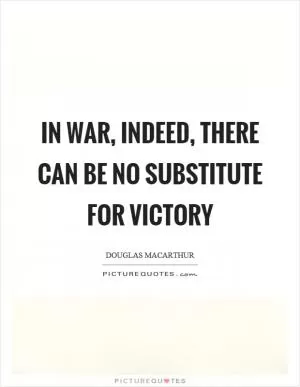In war there is no substitute for victory

In war there is no substitute for victory
General Douglas MacArthur's famous words, "In war there is no substitute for victory," encapsulate his belief in the necessity of achieving a decisive and complete victory in conflict. As a highly decorated military leader who played a crucial role in World War II and the Korean War, MacArthur understood the brutal realities of war and the importance of emerging victorious in order to secure lasting peace and stability.MacArthur's statement reflects his strategic mindset and his commitment to achieving military objectives with determination and resolve. He believed that half-measures and compromises in war only prolong the suffering and destruction, and that true victory is the only way to bring about a lasting resolution to conflicts. This mindset was evident in his leadership during World War II, where he led successful campaigns in the Pacific theater and played a key role in the defeat of the Axis powers.
During the Korean War, MacArthur's belief in the necessity of victory led to his controversial decision to push for a full-scale invasion of North Korea, despite warnings from his superiors. While his actions ultimately led to his dismissal from command, MacArthur remained steadfast in his belief that only through decisive action could the war be brought to a successful conclusion.
MacArthur's words also speak to the moral and ethical dimensions of war. He understood that the costs of conflict are high, both in terms of human lives and resources, and that the only way to justify these costs is by achieving a clear and decisive victory. By emphasizing the importance of victory, MacArthur sought to instill a sense of purpose and determination in his troops, inspiring them to fight with courage and conviction in the face of adversity.
Overall, MacArthur's words serve as a reminder of the harsh realities of war and the importance of pursuing victory with unwavering determination. While the costs of conflict are high, the rewards of achieving victory are even greater, as it paves the way for a more stable and peaceful future. In the context of MacArthur's military career and leadership, his belief in the necessity of victory remains a powerful and enduring legacy.












 Friendship Quotes
Friendship Quotes Love Quotes
Love Quotes Life Quotes
Life Quotes Funny Quotes
Funny Quotes Motivational Quotes
Motivational Quotes Inspirational Quotes
Inspirational Quotes